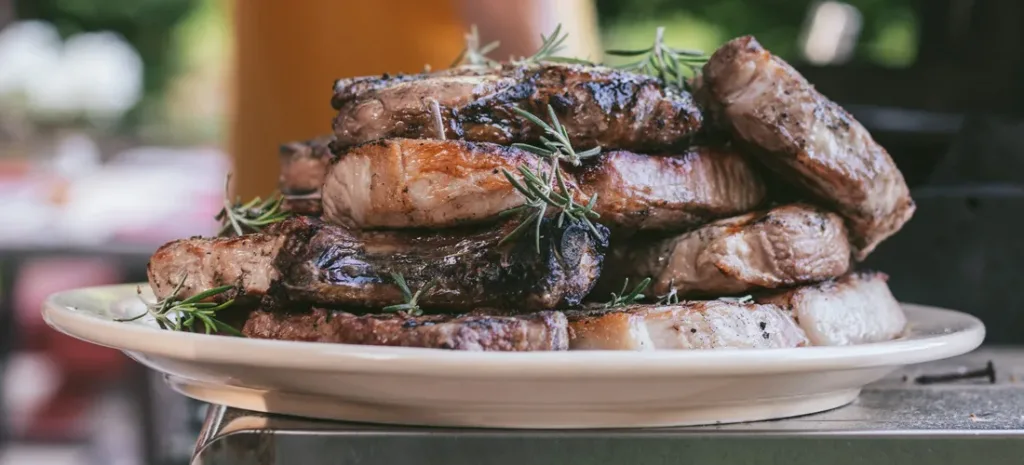FreshDirect Sourced: Hickory Nut Gap
Hickory Nut Gap is a community of Appalachian farms that are dedicated to humanely raising animals on pasture. They employ regenerative practices that enrich the land and invest in local food systems. We sat down with owners Jamie and Amy Ager to learn more about how this FreshDirect partner’s high standards and eye toward sustainability result in meat of the highest caliber.
True pasture-raised heritage breed pork is hard to find. FreshDirect has forged relationships with partners like Hickory Nut Gap to not only bring you this exceptional product, but also to provide a platform for smaller, environmentally-minded players within the highly competitive meat industry. “Hickory Nut Gap believes we all thrive from the ground up,” says Jamie Ager, who is a fourth generation farmer. “Everything we do is built upon the foundation of our soil, pasture, forest, water and regional farming culture. By partnering with the land, we can produce healthy and delicious meats while regenerating the soil, pastures, and watersheds which contributes to improved climate resilience.”

Co-owner Jamie Ager
Hickory Nut Gap’s pigs are brought up as nature intended, roaming free on wooded land and never confined to cages or crates. They feed on free-choice grain, alongside the grubs and saplings from pasture and forest. This leads to well-marbled, juicy, and tender pork of a superior quality that’s noticeably better than the rest. You’ll find it in our whole selection of pasture-raised pork cuts, as well as in value-added items like our own sausages.
The farms’ regenerative practices help enrich the soil and feed the microbial life underground. This living soil can sequester carbon instead of releasing it into the atmosphere, which greatly benefits the atmosphere and environment. These practices also improve water holding capacity, reduce erosion, and enable better cycling of nutrients like nitrogen. They help maximize biodiversity on the farm, contributing to the health of soil microorganisms, plants, pollinators, birds, and small mammals and leading to a holistic, functioning ecosystem.
At the end of the day for the Agers, the hard work that goes into doing things sustainably and with an attention to quality is driven by a passion for ensuring the land, its creatures, and the communities connected to them can exist harmoniously. In Jamie’s words, “If we can really help change agriculture and move it in a direction that’s more connected to consumers, and more focused on a holistic framework, then that’s what we’re excited to do.”

